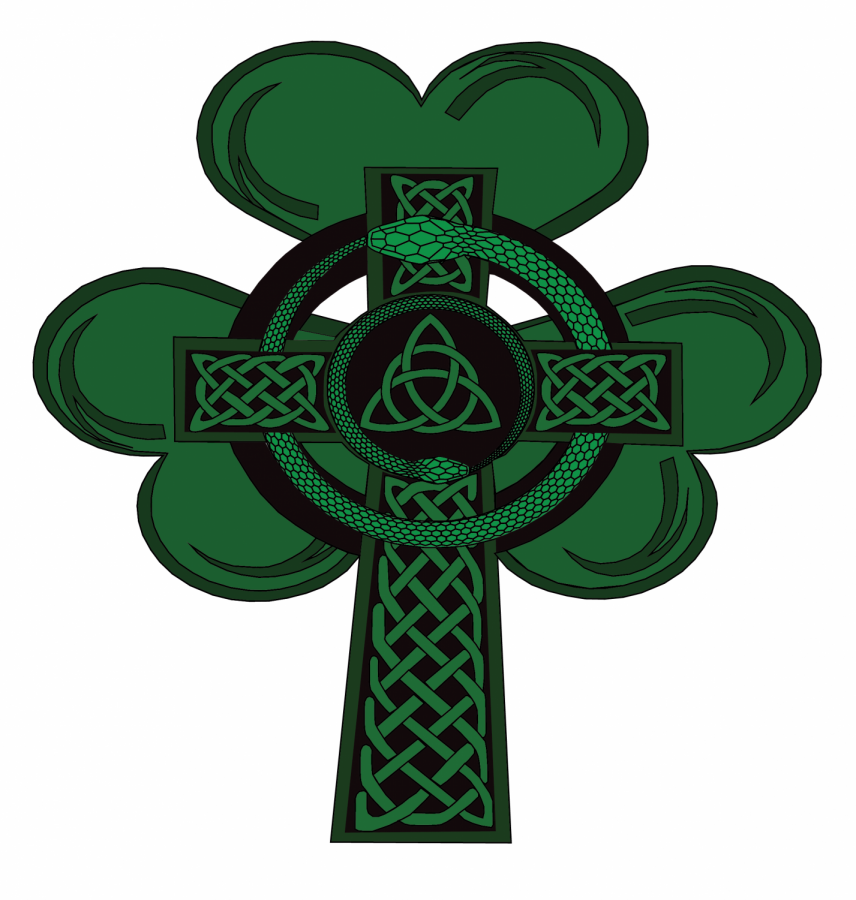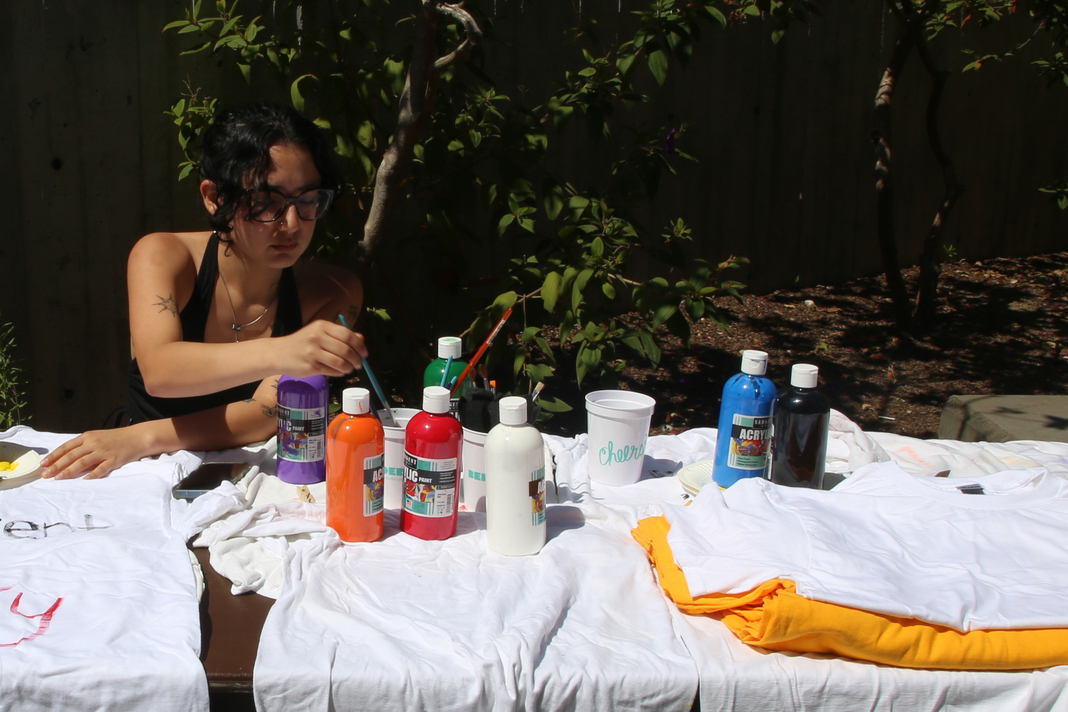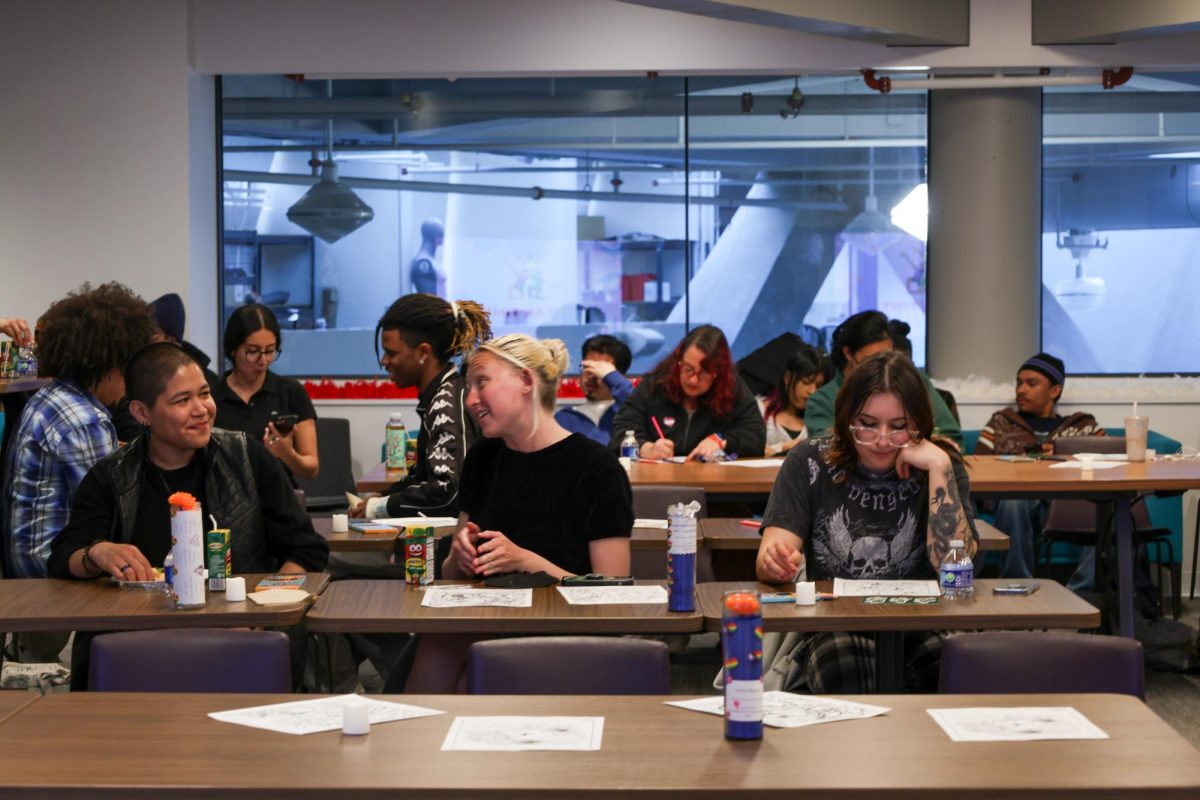St. Patrick’s Day: a day for Americans to revel in stereotypical Irish culture; whether that’s raising a pint, setting up leprechaun traps or wearing green to prevent from being pinched.
Though the secular, commercialized version of the holiday is what’s most commonly celebrated in the U.S., it stems from the Catholic feast day for the eponymous figurehead who’s responsible for bringing Christianity to Ireland all the way back in the Fifth century. It’s also a day that some pagans — specifically Celtic pagans — don’t necessarily embrace.
The Occult Student Alliance, a coalition of SF State witches, pagans and others who practice alternative spirituality, joined together with SFSU Transfer Peer Mentors, an organization that provides resources to transfer students, for an Instagram livestream event to discuss the holiday’s dismissive nature on pagans.
Em Weissensee, self-identified pagan witch and host of the event, said the holiday feels like a representation of pagans being cast out of society as monotheism took over.
“It’s a little bit of a hard pill to swallow, thinking about how much of our personal history is lost. It’s really hard as a modern pagan to learn what your ancestors did because so much of it is just lost,” Weissensee said. “So St. Patrick’s Day has that sort of deeper meaning for us, but it’s not to say that nobody should celebrate it.”
As the legend goes, one of St. Patrick’s most notable deeds was driving the snakes out of the Emerald Isle indefinitely. Snakes were never in Ireland, however, according to historians and fossil records. Scholars propose the “snakes” in the story to be less literal and more of a symbol for pagans converting to Christianity, as the reptile is frequently seen as an emblem for Satan in biblical tales.
“It did become a metaphor for pagans because snakes are associated with the devil and we are branded with this, like, devilish identity,” Weissensee said.
Paganism, a vast term coined by Christians to refer to traditional, regional religions of Europe, is often centered around worshiping nature, multiple deities and embracing cultural heritage. It’s an umbrella term for ancient, region-specific beliefs, including Wicca, Hellenism and Druidry.
Sunny Hibbits, an SF State student and Celtic pagan practitioner, said she’s always been a spiritual person, partially because of her Catholic upbringing, but she converted in the hopes of finding a greater understanding of her roots as an Irish American.
“I didn’t feel like I had like a true lineage, so when I went back to it and knew more about my Irish past, and being a spiritual person, I converted when I found out that practicing Catholicism isn’t really in my roots, and if it is in my roots, it’s in more of an oppressive context that I don’t relate to,” Hibbits said.
Weissensee and Hibbits, both former private Catholic school kids and co-leaders of the OSA, said that they found liberation in individualized practices in witchcraft. Their organization is an eclectic group of individuals who practice their own forms of alternative spirituality, from Christian witchcraft to Satanism.
“For me, my only parameter with witchcraft is being respectful of culture, and making sure not to cross lines there, but other than that, in my opinion, go HAM,” Weissensee said.
Their members are largely comprised of queer students from all backgrounds. They’ve also recently received inquiries from Indigenous students who hope to delve into their own ancient practices as well. Weissensee thinks paganism and occult practice in general is making a comeback, as those traditionally outcast from society are finding their place in a more open-minded world.
“Nowadays, when we have more of an acceptance with queerness, more of an acceptance of outcast identity, we’re seeing this resurgence,” Weissensee said. “I also think that the church, specifically the Catholic Church, is not progressing with that message and it leads a lot of people astray from the Catholic Church.”
Hibbits said she feels shameful when people assume she’s an evil person or someone without a soul because she’s a witch. She’s accepted the continuous fear mongering and stigma behind the occult, which is why St. Patrick’s Day feels uncomfortable to her, but not downright offensive.
“We’re so used to being misunderstood that you’re just like, ‘Well that’s just the way it goes,’” Hibbits said. “That’s why we make our own groups where we know what we’re talking about, and we have covens and our own practices that we kind of live out in the shadows in our own secure circles.”
Tatiana Mercier, facilitator of the event and transfer student mentor, thinks it’s important to have these conversations to better understand the context behind the holiday and recognize it as more than just a day to wear green and bar hop.
“I feel like paganism in general, and in this country specifically, is really misunderstood,” Mercier said. “I mean, which is fair, because honestly, we’re not really taught about it. It’s not something that’s common knowledge for a lot of people unless you kind of go looking for paganism and kind of enter that world by yourself.”









